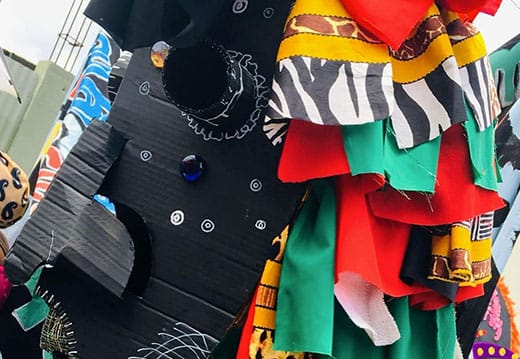If you would like to join our yard directory
Caribbean Yard Campus is an educational enterprise that is designed to network traditional knowledge systems in the Caribbean.


The great cultural diversity of the Caribbean has bequeathed to its people ways of being, seeing, knowing and doing that are informed by places of origin, historic conditions of arrival in the Caribbean and encounters with other cultures in this space. This body of experience, know-how, wisdom and values constitutes ‘traditional knowledge’ which has shaped the people and cultures of the region.

Traditional knowledge, though often unaccredited in formal education, exerts a powerful influence on modern Caribbean society including on the formal, western education system itself, with which it sometimes comes into conflict. Mass access to formal education, it should be noted, is a relatively recent experience, dating less than fifty years.
The organising agency for traditional knowledge is the communal ‘yard’.
In the movement of peoples throughout the Americas, the Yard has been at the core of a lifelong learning space – from womb to wake – and represents, therefore, a valuable repository of traditional knowledge which, if tapped, could contribute significantly to a culturally coherent path for Caribbean development.
By creating intersections between traditional knowledge systems/experts and academic workers, Caribbean Yard Campus aims to produce culturally relevant approaches to development challenges in the region. This interface involves areas of educational content, methodology, ownership, authority and ultimately, empowerment in a knowledge-based society.


At its initial level, Caribbean Yard Campus will be a network of existing programmes in cultural education based in, and run by, traditional communities and their institutions around the Caribbean region. To these existing educational programmes, Caribbean Yard Campus offers:
At the innovative level, Caribbean Yard Campus will plant new programmes using relevant indigenous technologies, community structures and values to create intersections or ‘crossroads’ for development in any aspect of Caribbean life.







Goal #1: To provide access to sources of Caribbean traditional knowledge (CTK)
Understandings and insights, customs and technologies, wisdom and philosophies accumulated by the peoples of the Caribbean over centuries of living in the region.
Objective #1a: To create a curriculum based on CTK
Objective #1b: To offer courses to the public based on CTK
Goal #2: To help mainstream traditional knowledge-bearers
Objective #2a: To engage knowledge-bearers as experts in the sharing of their knowledge
CYC is committed to maintaining quality in delivery of its programmes, management systems, and interaction with the public and partnering organizations to ensure customer satisfaction. We have an open policy of communication between candidates, faculty and administration.